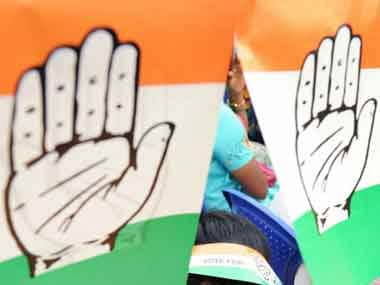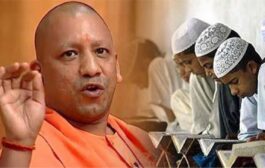India started sending out distress signals when cow lynchings began and after note ban. But there was no crackdown on hooligans, and the ruling dispensation was busy patting itself for banishing cash

A nation, crushed by a totalitarian system and degraded into becoming a mere object for a despotic ruler and his tiny team of lieutenants, sends out distress signals constantly. India began sending out distress signals as soon as the cow lynchings began and again after Demonetisation. There was no serious crackdown by the law and order machinery on the hooligans, and the ruling dispensation was busy patting itself for banishing cash.
Those who voiced their protest in the tiny sliver of media that still dared to give out real information, were soon dubbed as spiteful anti-nationals with a political agenda, opposed to progress and modernity. Our real Hindustani values are different, we were told, in one-sided heart-to-hearts on the radio. Then came the GST with multi-layered provisions for different goods and services which had to be rejigged multiple times. And now the Finance Minister tells the nation that the future road map could well be to work towards two standard rates of 12% and 18%.
Even after the recent rejigging, well-known singer Shubha Mudgal tweeted on how classical musicians pay more GST than shoemakers! The rupee is currently Asia’s worst performing currency. In 2018, investors have pulled out some $7 billion from the local bond market.
Let’s look beyond India. Europe, that never recovered totally from the 2008 setback, is struggling to keep the structurally weakened Eurozone together. The US-China partnership is altering fast and in fundamental ways. China’s decline in production can cast a long shadow over all of Asia. Beijing is facing a slowdown larger than initially thought. India unfortunately has a recent record of missing opportunities that this and low oil prices present it with.
General elections loom close and recent Assembly polls in five states and several by-polls indicate a loss of popularity for the rulers. So populist palliatives are being prescribed for all distressed sections: higher MSPs, writing off farm loans, promises of rural employment, health cover for all, etc. This will invite fiscal indiscipline and pressuring of the RBI to recapitalise PSU banks.
2018 was a year when Big Tech collided with Realpolitik. Europe passed its General Data Protection Regulations that hands the ownership right back to the individual citizen. But in India, the Facebook-owned WhatsApp is being pressured by the government to try and shut down all groups that it deems to be spreading ‘anti-national’ messages. The emphasis seems to be less on handing back the right to privacy to individual users and making its own workings transparent by putting out all information on line, and infinitely more on “catching” those who don’t fall in line.
Two PILs have been filed in the Supreme Court, challenging the Centre’s recent notification that allows 10 central agencies to intercept, monitor and decrypt any computer system! Meanwhile an already overburdened Supreme Court has been urged to constitute a special bench that will speedily adjudicate on the matter of building the Ram temple in Ayodhya.
All despots believe that citizens are abject creatures. Abject courtiers follow them and populate the environment in Lutyens Delhi
Amid all this chaos, a spirit of retaliation and a thirst for revenge seem to muddle the national atmosphere where some Chief Ministers and Union Ministers call for a regressive return to medieval ritualism instead of protecting the secular structure of the state as per law.
Silly debates about the caste of Hanuman, women’s right to enter a temple and the renewal of rath yatras are more a matter of political spite than a desire to recapture the forgotten world of our ancestors. Ceremonies are suddenly transformed into political acts. The normal calendar of festivals like Holi, Navratri, Eid and Christmas is developing into a series of explosive happenings and bloodshed.
All despots believe that citizens are abject creatures. Abject courtiers follow them and populate the environment in Lutyen’s Delhi. They think if they feed the crowd and provide them with spectacles like Dev Divali and Ganga Arti, it is happy. Yet, surprising things do happen. Even a well-fed and well-entertained crowd of voters stops obeying. It begins to demand more than sops and spectacles. It wants freedom and it wants justice. It wants jobs. The despots are stunned. Activists of the party are then assembled in town halls.
The gatherings are addressed by ministers and the halls display large cutouts of the smiling despot. Buses and tractors bring people to rallies and take them back. In between, Poori Aloo and Bisleri water is served to the crowd. “I am resolute, we shall move forward,” the leader declares in televised speeches. Resolute about what? Frankly about retaining power and to that end in the last one year, people have been killed, locked up, shot at, sacked and driven to penury. But still, farmers march through the streets of Delhi and Mumbai. But they are disciplined. They make room for children taking examinations, they respect patients’ right to silence in and around hospitals.
In every general election, anti-incumbency grapples with a structure. The structure defends itself. The last elections in 2014 was a theatre where machines, that can show the Great Leader at various places simultaneously in three dimensions, were procured at great cost. Huge statues and cutouts of him were erected as all spotlights converged on him. It was a one-character play with the actor also being the playwright and the director. Everyone else was an extra. But 2019 threatens this play at several levels.
What if confusion breaks out and the audience begins to hoot and guffaw and then leave? In MP, Rajasthan and Chhattisgarh, the rulers had created a system capable of defending itself brilliantly. This was its undoing. The psychological foundations of this template are a ruler’s scorn for his people and a conviction that a nation of idiots can be duped by continual promises. But promises, as an old Irani proverb says, have value only for those that believe in them.
source: NH







































